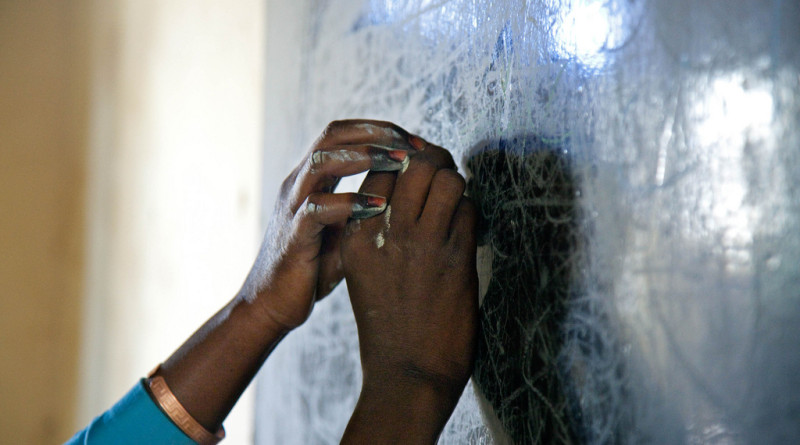-
- Dr Br Brendan MacCarthaigh is an educationist and co-founder of SERVE.
Throughout India teachers use the ‘Question & Answer system’ of imparting knowledge, since imparting knowledge is considered synonymous with teaching. The students then ingest the answer and regurgitate it on demand in what are called Exams, which are only memory tests. When you’ve done that for ten years to the various teachers’ satisfaction you get certified as being Educated, and launched upon the world among millions of others similarly misled into the same sad belief, to deal with this Life mystery. And making a mess of it – otherwise why would we as a nation have the highest student suicide rate in the whole world?
There are computers and a variety of mobile phones to help do calculations that formerly took a very long time, now done in seconds. There are Smart-boards, a great idea, to make the presentation of a topic interesting and intelligible. All are moving in the right direction – creative pedagogy and innovative learning. In other words, students have a better chance of understanding what their syllabus prescribes, and even of utilizing it in various situations. But across this vast land, a tiny few have access to these tools, and even of these there are only a minority of teachers who know how to use them. There are enormous local problems too – electricity, security, language, numbers in class, temperatures – realities that we on the ground are wearily familiar with. And yet we are expected – well, directed – to so teach that the children are in fact equipped to deal at an age-appropriate level with the world they are growing up in. It rarely happens. One of the many reasons for this is, the teachers themselves are following the time-worn system born of Macaulay’s 19th century ideas, instead of our own more suitable gurukul system, now quite dead. And Macaulay’s (British) system no longer fits this country, nor indeed any country – even England, which has long since abandoned it!
Here and there one encounters innovative teachers, women and men who interest their students, and get the required data across to them enjoyably. Good for them. But if a system is not replicable, then it is both time- and space bound, and thus of limited value. What this little essay suggests is a replicable system that has won its spurs in Delhi a quarter-century ago, and is seeing a resurrection in West Bengal at the moment. It is a simplified and less expensive form of Collective Learning, and endorsed by the then director of SCERT Delhi, Dr Janaki Rajan, as being the most democratic system in Indian school education.
The good news about this system is that the same amount of ground (i.e., the syllabus) gets covered, the teacher and the kids enjoy it far more than the traditional system, and along with the knowing factor in education generally it involves and develops the other leg of the process, i.e. the growing. It works from Class III or even II, right through to college, inclusive, though in this little essay we shall confine our attention to the school years. On my table at this moment I have a sort of booklet called, and I retype carefully, DANGER: SCHOOL an earth care books publication. It identifies the various factors of our school system that proactively damage the children, showing – in case we practitioners hadn’t noticed – that the entire edifice is rooted and developed on a premise of fear. It has its own inbuilt caste system, its own systems of recognition and derecognition, its own fundamental lies, in fact – most especially that knowing specific answers to standard questions is the key to handling life comfortably. As a tool, then, for preparing the youngster for life today, 21st century India, in a 21st century world, it is farcical. The title of this piece alludes to ‚adverse situations‛. These would include poverty, even squalor; overcrowded classrooms such that many students cannot either hear the teacher or see the chalkboard; real-life application of caste and gender and even religious prejudice in classroom management; actual corporal punishment; impossible conditions for the teacher to demonstrate what should be demonstrated, eg the entire field of mathematical calculation including physics, and of course sporadic, if any, electricity. These are just a few. We don’t include our weather and climate conditions because there is nothing we can realistically do about them. Government school teachers are well paid, but in many private schools the salary is derisive even as a basic wage. There is another vital item in our preparatory agenda. In the first paragraph there is a reminder about the grim statistic that India has the highest student suicide rate in the world, and that the figures are getting worse each year. Any creative pedagogy we might offer, to be realistic, must keep that frightening item in mind. Children all over the world do exams, and though the systems vary, there is still in many countries the pass-and fail result.
Why is it that our kids go for suicide when they fail far more often than kids in other countries? And if not suicide then all sorts of schema to avoid what is considered a terrible social stigma? Notoriously we cheat in exams, we lie, we copy, we buy better results at more-or-less any price depending on the importance of the exam itself. We are not really bothered about knowledge, only about percentages – marks. By the same token, we are less concerned about such considerations as honesty, integrity, fair play, than with the last line: acknowledged success. So then: our kids – even those no longer kids – escape failure by any means, even suicide, more than examinees anywhere else in the world – even Japan. To respond to this, we must design a system of ‚creative pedagogy and innovative learning‛ congruent with the underlying psychology revealed in this attitude of ours. It comes down to this: we are different. What is that difference? It is that we are Indians. Yes, so what? So, every nation in the world has its own basic psychological response to life’s stimuli. Our research into this phenomenon identified that that basic psychological response is revealed in the one word: izzat. It translates as ‚prestige and status‛. We use it all the time in encounters with others, one-on-one or family or company – it is our identification mark. Just as we see Americans as – no offence – arrogant and loud, the British as – no offence – supercilious and presumptuous, because this is how they behave in so very many public and private encounters, so we Indians are identified by our izzat. To protect our izzat is therefore a kneejerk and primary response to all provocation and threat. Specifically, as in exams, to the possibility of failure. It is just not on, at any price, whatever the western world may say about us derogatively. And so we cheat, etc. But the fact is, we made fools of ourselves by adopting the Macaulay system, it had to lead to this regrettable situation. How to get round it? By adopting what is now known as The SERVE system, which is in effect child-centered team learning, with the teacher as only a facilitator. I understand this essay to be a sort of sketching of the scene towards creative pedagogy, not a manual on how-to. But I can recommend a handbook called Where the child is without fear, an earth care books publication There the system is presented in detail, and in our opinion worth the investment, if we are to change those terrible suicide statistics and other negative factors that characterize our education system throughout the country.










